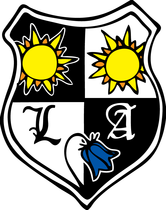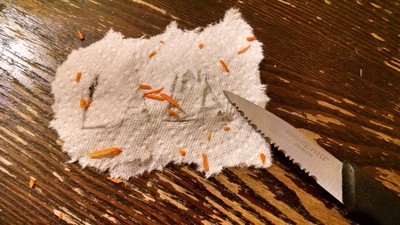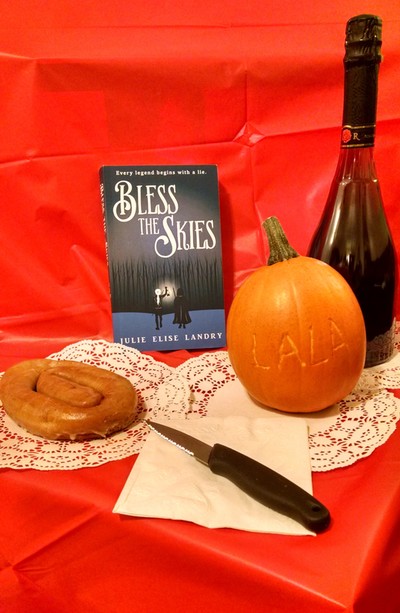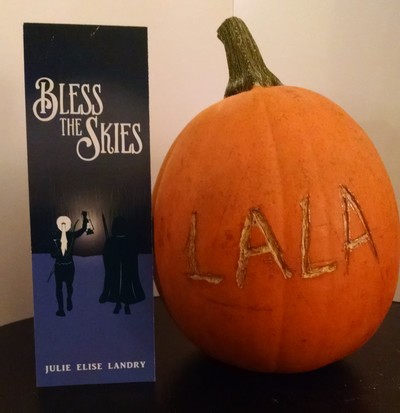
To start, some context. I believe records of the written and spoken word often lack context, prompting misunderstanding and misinformation. Context is the difference between (1) cursing out the vile, malicious, reprehensible degenerate who cut you off in traffic, and (2) ignoring your uncharacteristic mistake when you cut off the next car—because you’re late for a job interview, you need rent money, and you’re still shaken up about that horrendous monster who nearly merged into you.
For this reason, I begin my post not where it begins, but with a few contextualizing statements.
This post will focus on the villain-figure in my dark fantasy novel Bless the Skies. The character's traits and characteristics will be discussed in detail, independently of the story, without mentioning or spoiling the plot.
For this reason, I begin my post not where it begins, but with a few contextualizing statements.
This post will focus on the villain-figure in my dark fantasy novel Bless the Skies. The character's traits and characteristics will be discussed in detail, independently of the story, without mentioning or spoiling the plot.
The character is fictional. He is a non-person, who does not exist and who has never taken any action of any kind, foul or fair.
While people who share his traits exist in the world, he does not represent anyone but himself. Any comment or judgment I attach to him, I attach to him, and not to people like him.
All characters sprout from pieces of the writer. Those sprouts may not grow into a character’s dominant characteristic, and may not even be evident on a surface level.
I’m uncertain of this post. I’m uncertain if I, as the author, should discuss my internal relationships with my characters apart from the content of the text and apart from the readers’ experiences. But in this case, I feel I require the context of this post in order to proceed with any public discussion of the novel and its characters.
I am afraid of confrontation and afraid of discussing controversial issues outright, because I worry I will not be able to express any issue's complexities. Thus, I feel the need to offer as much context as possible. (Somewhat related: this TED talk.)
High Lord Lawrence Anderton is a vile, malicious, reprehensible human being and a horrendous person—in truth, with all his context, regardless of how I engage with him as a creation.
Now, to the body of the post!
While people who share his traits exist in the world, he does not represent anyone but himself. Any comment or judgment I attach to him, I attach to him, and not to people like him.
All characters sprout from pieces of the writer. Those sprouts may not grow into a character’s dominant characteristic, and may not even be evident on a surface level.
I’m uncertain of this post. I’m uncertain if I, as the author, should discuss my internal relationships with my characters apart from the content of the text and apart from the readers’ experiences. But in this case, I feel I require the context of this post in order to proceed with any public discussion of the novel and its characters.
I am afraid of confrontation and afraid of discussing controversial issues outright, because I worry I will not be able to express any issue's complexities. Thus, I feel the need to offer as much context as possible. (Somewhat related: this TED talk.)
High Lord Lawrence Anderton is a vile, malicious, reprehensible human being and a horrendous person—in truth, with all his context, regardless of how I engage with him as a creation.
Now, to the body of the post!
Why I Love Lawrence Anderton
Anderton. Andy. Larry!
We have an odd relationship, he and I.
I work carefully to ensure that he remains unaware of me. Many of my characters exist in a semi-self-aware state in the odd sanctuary of my writer’s brain, but I avoid poking Anderton too much lest he turn around to look at me. I think he would resent having been created.
And yet, I’m more aware of him on a more consistent basis than the majority of my characters. He perks up when I listen to Frank Sinatra. (He particularly likes “I’ve Got the World on a String” and “All of Me.” He dances, you know.) His feathers ruffle when his disembodied non-existent form grows bored in the empty landscape of his environment.
I should explain why he's so "loud"—explaining is the purpose of this post, after all.
In order to write Anderton, I needed to see him the way he sees himself. And Lawrence loves himself. He thinks he’s bright and generous and hard-working, he thinks he’s the funniest man alive, he thinks he’s impossibly likeable—an optimist, a dreamer, a savior, a friend. He's loyal. He keeps his promises.
Anderton doesn’t exist—I am Anderton, as much as I am Elaina and Laeli and Matthew and all the rest—and yet, I’m none of them. I’m me. And they don't exist within "me," don’t represent me, don’t reflect on me. None of them are self-insertions or vessels for me, Julie, the author.
Writers split themselves into pieces, then mold those bits into alien matter. We make the nothing of the characters from the something of ourselves.
Anderton stands apart from my other characters because he’s the only one who likes himself. He knows who he is, what he likes, how others view him—and he’s entirely at peace. He’s secure, calm.
For that reason, he was my favorite to write. I giggled when I wrote Anderton, because he was happy. I felt pride when I wrote Anderton, because he felt in control. He overwhelmed me with his joy for life—a breath of fresh air compared to all the others in my dismal, self-loathing, self-repressing cast.
He’s a funny little monster, who’s irredeemable, but whom I cannot dislike.
Whenever I want to post something about Bless the Skies, I have to remind myself that he’s hateful. I have to remind myself that he’s a nightmare, that few if any will find him as humorous as I do.
I’ll slip sometimes. I’ll make the abusive sadist into a comedic mascot. I’ll sell stickers of his crest and paint his initials on my face. I’ll cut his initials into a pumpkin for Halloween and post it with tears of laughter.
We have an odd relationship, he and I.
I work carefully to ensure that he remains unaware of me. Many of my characters exist in a semi-self-aware state in the odd sanctuary of my writer’s brain, but I avoid poking Anderton too much lest he turn around to look at me. I think he would resent having been created.
And yet, I’m more aware of him on a more consistent basis than the majority of my characters. He perks up when I listen to Frank Sinatra. (He particularly likes “I’ve Got the World on a String” and “All of Me.” He dances, you know.) His feathers ruffle when his disembodied non-existent form grows bored in the empty landscape of his environment.
I should explain why he's so "loud"—explaining is the purpose of this post, after all.
In order to write Anderton, I needed to see him the way he sees himself. And Lawrence loves himself. He thinks he’s bright and generous and hard-working, he thinks he’s the funniest man alive, he thinks he’s impossibly likeable—an optimist, a dreamer, a savior, a friend. He's loyal. He keeps his promises.
Anderton doesn’t exist—I am Anderton, as much as I am Elaina and Laeli and Matthew and all the rest—and yet, I’m none of them. I’m me. And they don't exist within "me," don’t represent me, don’t reflect on me. None of them are self-insertions or vessels for me, Julie, the author.
Writers split themselves into pieces, then mold those bits into alien matter. We make the nothing of the characters from the something of ourselves.
Anderton stands apart from my other characters because he’s the only one who likes himself. He knows who he is, what he likes, how others view him—and he’s entirely at peace. He’s secure, calm.
For that reason, he was my favorite to write. I giggled when I wrote Anderton, because he was happy. I felt pride when I wrote Anderton, because he felt in control. He overwhelmed me with his joy for life—a breath of fresh air compared to all the others in my dismal, self-loathing, self-repressing cast.
He’s a funny little monster, who’s irredeemable, but whom I cannot dislike.
Whenever I want to post something about Bless the Skies, I have to remind myself that he’s hateful. I have to remind myself that he’s a nightmare, that few if any will find him as humorous as I do.
I’ll slip sometimes. I’ll make the abusive sadist into a comedic mascot. I’ll sell stickers of his crest and paint his initials on my face. I’ll cut his initials into a pumpkin for Halloween and post it with tears of laughter.
It’s not a dismissal of his actions, of his cruelty toward other characters in the book—it’s Anderton’s opinion of himself leaking out into me.
I am delighted by Anderton, because he delights himself. That delight never dulls, though he causes irreparable pain for the sake of his own enjoyment, though he abuses and demeans and destroys.
As I've said, encountering such an individual in real life would prompt a significantly hostile response. But I know one day in the future, I'll be discussing the book and grinning in mad glee over Anderton, and I'll give the wrong impression to someone injured by the thought of him.
It’s complex. It requires context and abstraction to understand.
Apart from being in his head (and vice versa), if I’m being honest, I’m also a sucker for monsters, for villains who gut the audience.
A reviewer recently said the following about Anderton:
I am delighted by Anderton, because he delights himself. That delight never dulls, though he causes irreparable pain for the sake of his own enjoyment, though he abuses and demeans and destroys.
As I've said, encountering such an individual in real life would prompt a significantly hostile response. But I know one day in the future, I'll be discussing the book and grinning in mad glee over Anderton, and I'll give the wrong impression to someone injured by the thought of him.
It’s complex. It requires context and abstraction to understand.
Apart from being in his head (and vice versa), if I’m being honest, I’m also a sucker for monsters, for villains who gut the audience.
A reviewer recently said the following about Anderton:
As for Lord Anderton… well let’s just say that he turned out to be an incredibly disturbing man, portrayed in a way that was so realistic and rational it left me too disturbed to go to sleep. — Premier Book Review
There’d be no better way to convince me to read a book.
When I’m reading books or watching movies or playing games, I love the villains and bad guys who horrify me: Captain Vidal from Pan’s Labyrinth, Claude Frollo from Disney’s Hunchback of Notre Dame, the Danes from A Darker Shade of Magic, Schaffa from The Broken Earth trilogy, Cersei from Game of Thrones, Randall Flagg from The Stand (and other Stephen King novels), Mrs. Danvers from Rebecca. The list goes on forever.
It’s exciting that I may have created a believable antagonist—I want readers to be horrified by him, because from the perspective of a consumer, it’s my favorite way to feel. But in order to depict him, I had to understand him, to love him as he loves himself.
I hope I’ve provided sufficient explanation. I hope, in the future, these words will clarify my odd amusement in matters concerning Lawrence.
If not, I guess I’ll just have to—
Repeat.
When I’m reading books or watching movies or playing games, I love the villains and bad guys who horrify me: Captain Vidal from Pan’s Labyrinth, Claude Frollo from Disney’s Hunchback of Notre Dame, the Danes from A Darker Shade of Magic, Schaffa from The Broken Earth trilogy, Cersei from Game of Thrones, Randall Flagg from The Stand (and other Stephen King novels), Mrs. Danvers from Rebecca. The list goes on forever.
It’s exciting that I may have created a believable antagonist—I want readers to be horrified by him, because from the perspective of a consumer, it’s my favorite way to feel. But in order to depict him, I had to understand him, to love him as he loves himself.
I hope I’ve provided sufficient explanation. I hope, in the future, these words will clarify my odd amusement in matters concerning Lawrence.
If not, I guess I’ll just have to—
Repeat.




 RSS Feed
RSS Feed


